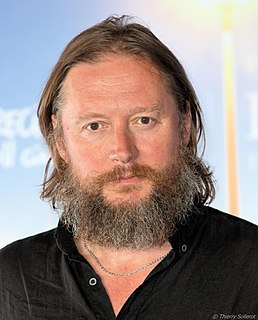A Quote by Thomas Kretschmann
I don't see a film industry in Germany. They have a great TV culture, but how many German films are really exciting?
Related Quotes
The problem with the British film industry is that it's really the American film industry, or a small branch of in lots of ways because of the common language. But it's great to see some individual voices still there. I think I probably gravitate towards a slightly more European, auteur model rather than the studio thing. I think it would be great if British films were a little bit more auteur driven.
When I started acting in the film industry when I was 16 years old, in 1980, I was going to all the revival theaters in Los Angeles. They were playing mostly films from the '60s and '70s, some from the early '20s and '30s, before that Hays commission. Those films did question things a lot, and there definitely was a switch in 1934. You can see very distinctly in 1934, it's harder to understand what the real culture was. Films made before 1934, you can really kind of see the racism, sexism, drug use, etc. that was going on at that time. And then it was all stopped.
The foreign audiences are somewhat surprised and happy to find an American film that asks questions about American culture. There's a certain kind of cultural imperialism that we practice. Our films penetrate every market in the world. I have seen and have had people reflect to me, maybe not in so many words or specifically, but I get the subtext of it - they're somewhat charmed and surprised and happy to see an American film reflect on our culture. Because they see other cultures reflect on our culture but they don't see US culture reflecting on itself in quite the same way.
I like the idea of seeing a film that has the artist's hand in there,a film where you can see his strokes, you can see his working patterns. It's like going to a museum and seeing a Renoir drawing. You want to see their work and you want to see how they put it together. For me to see that in animation is really fresh, it's really exciting, it's really original.
Many things have changed in our culture here in England as a direct result of the Pistols: the whole street-fashion thing in London, for example, or the coverage of popular culture in the national press, or the fact that the film industry is now about young people making films about young British issues.
Art should not be bound by barriers or language. The Hindi film industry is a testament to that. We speak only Hindi, but we premiere in Germany and Japan. Our films do phenomenally well there. We transcend the barriers of language and culture. We welcome you in. I think that's what art should be, and I hope America reaches that place.




































